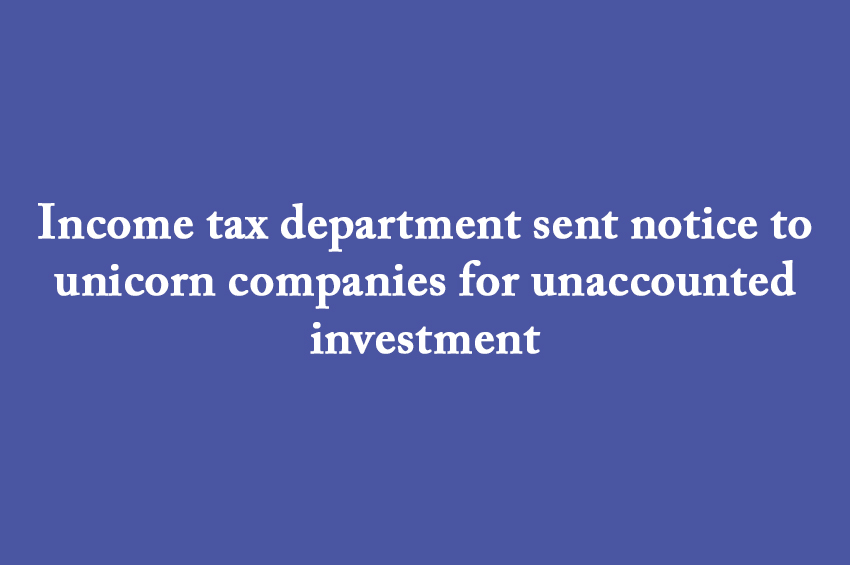Winning Bizness Desk
Mumbai. The Income Tax Department has sent notices to dozens of startups, including some leading unicorns, alleging having made unaccounted investments between FY 2019 and 2021. These notices have been sent to all types of startups including fintech aggregators and edtech. People privy to the development said that under Section 68 of the Income Tax Act, information has been sought on the source and nature of the investment in the notice. Every investment of Rs 100 crore or more is being probed but it is not known how many investments are being probed in total. Under Section 68 of Income Tax, those cases are investigated in which unaccounted money is deposited in the accounts of taxpayers and they are not able to give information about the source of the money. This section is generally used to ascertain the identity, creditworthiness and genuineness of the issuer of the shares.
Several questions raised
Some of these notices have also been issued regarding the local holding of foreign investors, valuation determined and purpose of loan availed by the investors. Questions have also been raised regarding funds received from promoter firms by subsidiaries of some MNCs. An official familiar with the matter said, the clarification is being sought in view of the growing threat of sending the amount out of the country and getting the same amount back as foreign investment. For this reason, non-resident investors have also been brought under the ambit of angel tax.
investors from 21 countries to be exempted
The official said that keeping in mind the regulatory framework, a list of exemptions from tax has been prepared. Sovereign wealth funds, pension funds and SEBI registered portfolio investors from 21 countries will be exempted from the provisions of angel tax as they are regulated entities. But companies in these countries are not fully regulated as it is easier to start a firm in these countries. Sources said the government has received suggestions from private equity and venture capital (PE/VC) funds to ease the terms and conditions. For example, the draft rules currently exempt only stocks for price matching and 10 per cent safe harbour, which is proposed to be extended to convertible bonds as well.


